Logistics
Logistic Tracking System: How to Optimize and Streamline Your Business Logistics?
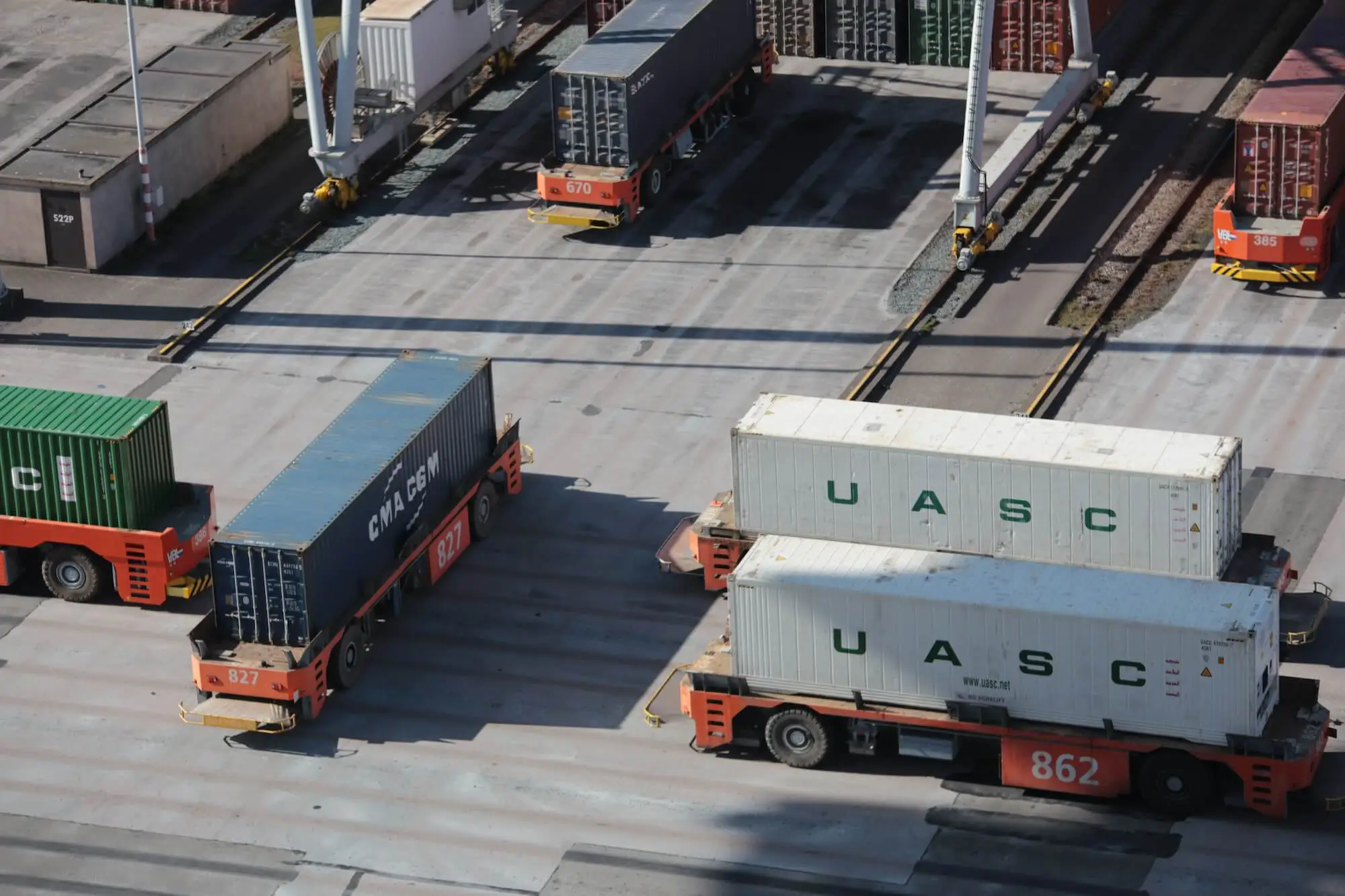
Logistic tracking is the only way to ensure your business runs smoothly. It’s essential for e-commerce companies that want to provide the best customer experience possible, but it can be challenging to set up if you don’t know where to start.
Customers demand complete visibility and accurate route tracking. Tracking shipments and effectively managing inventory are two critical components to responding successfully to the ever-changing demands of your market.
Because of this, it’s increasingly necessary to find practical solutions like logistic tracking system to improve and optimize processes and thus increase productivity and reduce operational costs.
Let’s explore how a tracking system in logistics works and how exactly it helps businesses optimize logistics.
How Does a Logistic Tracking System Work and Why Is It Important?
There are many different ways to set up your business’s logistic tracking system, but finding one that works for you is essential. A logistics tracking system is a database that stores information about the location of your inventory and how much of it you have in stock, helping you track resources more efficiently.
Logistics tracking systems also help you save money by reducing the inventory you must carry and enabling you to better predict customer demand. As a business in logistics, you must comply with various transport management system requirements while also considering profitability. Hence, you can use data to understand better where your business is losing money, how much inventory you should carry, and when to re-order new items.
This can be particularly helpful for e-commerce companies, which often deal with fluctuating sales and unpredictable demand. A logistic tracking system can help you stay on top of all these changes, so your business runs smoothly.
Logistic digital transformation with tracking systems can also help you identify trends in your business. Imagine you notice a product is selling exceptionally well - obviously, you may order this particular product to have it in stock and meet demand. Conversely, if a product isn’t moving off the shelves as quickly as you would like, consider reducing your inventory until sales pick up again.
A logistics tracking system can help you optimize logistics inventory management and reduce costs. The more efficient you are at tracking the flow of products through your supply chains, with features like location technology, for example, the better you will pinpoint areas for improvement and make changes that will save money.
A logistics tracking system can help you monitor your business’s performance and ensure customers receive their orders on time. Plus, features like logistics GPS tracker make order management easier for your user or customer and ensure that their packages arrive on time.
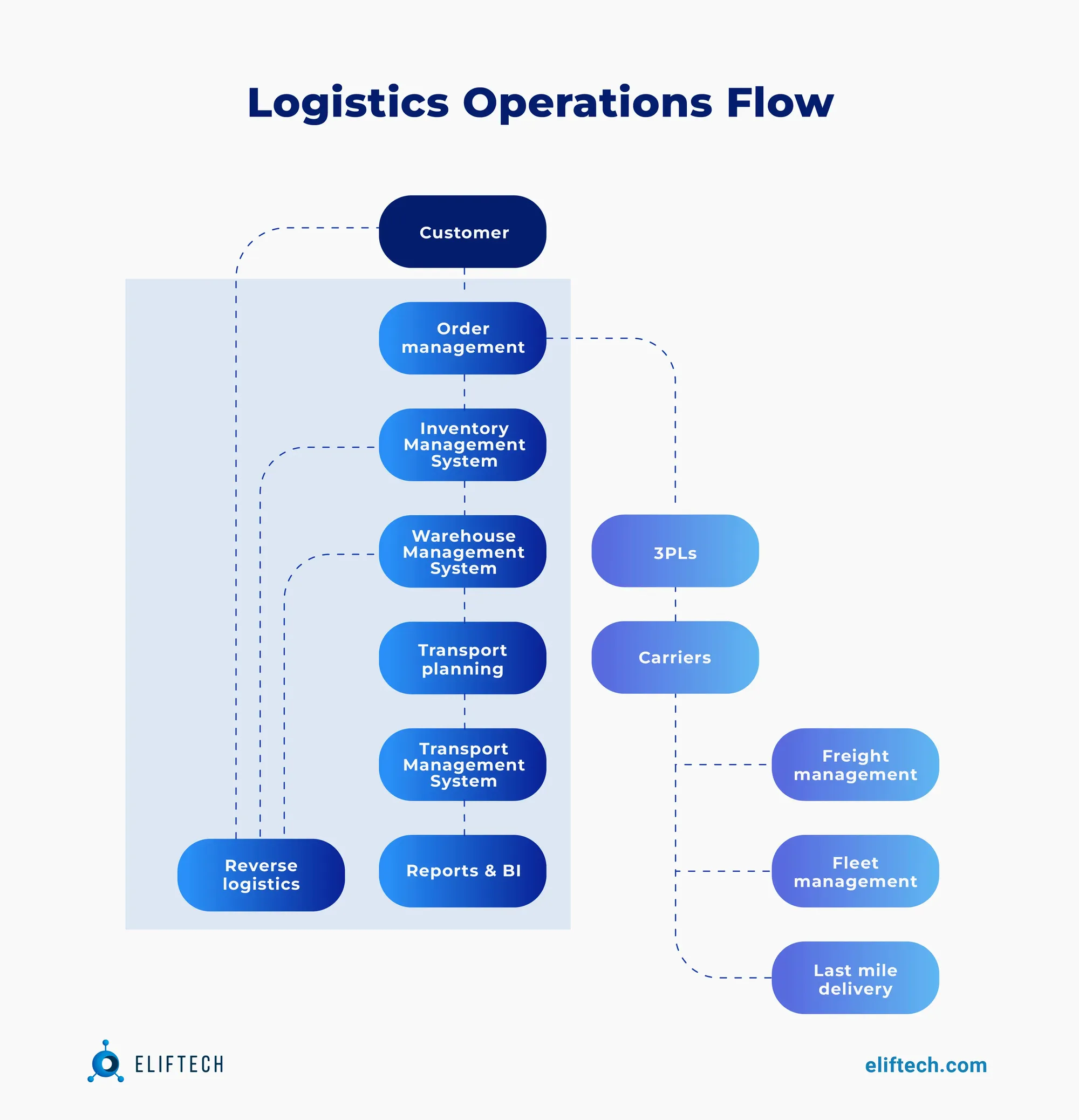
Ready to upgrade your e-commerce business with effective delivery and shipment tracking software? Explore our logistic software development services and get a consultation with the ElifTech experts in custom software development to explore the options for streamlining your business.
Software Solutions for Logistics Management
E-commerce businesses operate in different logistical environments and may have varying needs for tracking software to manage their logistical operations. The complexity of a business’s supply chains and the size of its operations directly influence the type of software it needs to manage those operations.
Here are some tracking software types available for e-commerce businesses:
- CRM systems: CRM allows you to control delivery at all stages of the coordination chain and automatically assign tasks to responsible employees. In addition, such systems contain all the necessary tools in one user-friendly interface. Therefore, they can integrate with the company's other programs, effectively planning the development strategy based on accurate analytical data. When developing a CRM system for optimized logistical processes, we consider all the specifics of its work, thanks to which the effectiveness of the custom-developed software increases significantly compared to the existing off-the-shelf solutions.
- Warehouse automation & software for warehouse coordination: Logistics optimization eases the record, management, and inventory distribution. For instance, the implementation of AI in logistics helps to predict the demand and ensure that warehouses run without severe disruptions. In addition, it helps to organize an efficient delivery process of goods to the final consumer and often intertwines customer satisfaction with the logistic tracking system of the enterprise.
- Car maintenance apps for drivers: Most often, this part of tracking software is installed directly on a smartphone and provides the driver with all helpful information on optimizing routes, documentation, and car maintenance.
- E-commerce software for logistics management: Such systems are designed to optimize specifically the e-commerce companies' logistical operations. They store information about the cargo, customers, warehouses, fleet, drivers, and scheduled transportation.
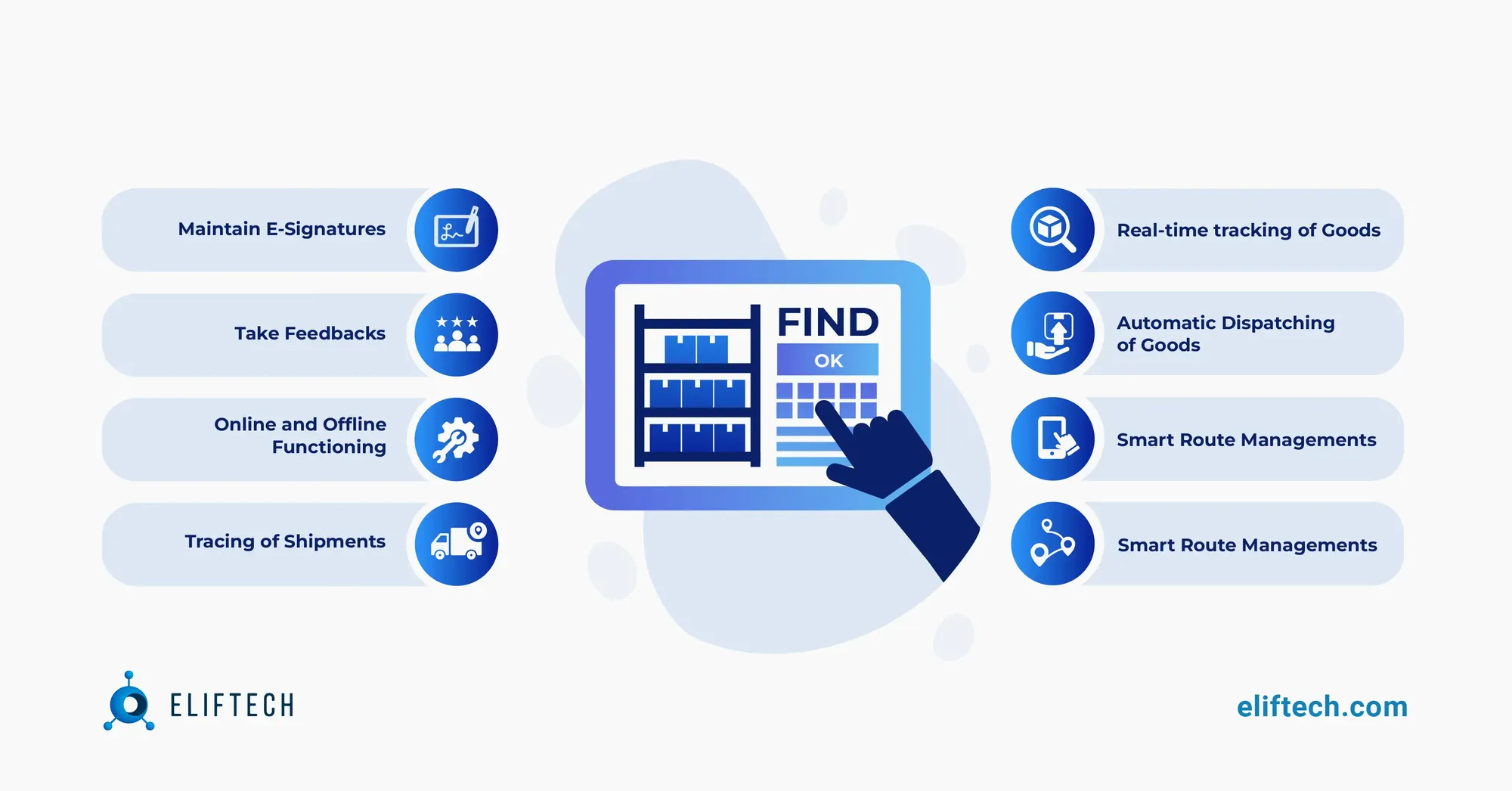
7 Benefits of Custom Logistics Software for E-Commerce Business
You have a lot on your plate when you're operating an e-commerce business. You need to make sure that your products are delivered promptly and that they're appropriately packaged. There are also the issues of how much inventory you have in stock and the issue of pinpointing those customers who have yet to respond to their orders.
It can become challenging to keep track progress, with all these things happening simultaneously. With cloud based custom logistics software or logistic apps, you can establish efficient order management throughout the process: from when they were placed online until they arrive at the customer's doorstep.
Transparency
It’s estimated that 99.6% is the average inventory accuracy for warehouses, while 0.4% is human error. Making more precise deliveries or even predicting delays and being better prepared to solve emergencies becomes many times easier with the help of logistics tracking software.
Develop a logistic tracking system to reach 100% accuracy and ensure packages and pallets arrive on time, in the proper quantity, and without damage. This means less room for error or confusion when fulfilling orders and keeping tabs on inventory levels.
Automated Workflow
McKinsey & Company research suggests seven key measures to reduce total costs to 20%. The most effective of these measures for many players are advanced production integration methods, flexible implementation planning using analytics resources, and operational planning and support activity automation by up to 50%. Indicators that will help determine the level of automation adopted by the operator include
- The cost of equipment and software,
- The volume of processed shipments,
- The cost and quality of labor,
- The cost of energy,
- Reliability.
An effective sorting process can optimize all these parameters. The logistics management system provides the dispatches with an effective operation. Otherwise, benefits obtained from one operation within the supply chain will be canceled by the second.
Reduced Costs
Significant cost reductions can be achieved through optimization and automation with tracking system in logistics. A logistic tracking system can help you reduce your overall costs by identifying where there may be inefficiencies within your processes. In particular, applying AI in supply chain can optimize route planning, reduce fuel consumption and improve supplier relationship management.
By monitoring the flow of products from their point of origin to their final destination, you can identify areas where there are delays or lost revenue opportunities due to wasted time or materials. Once you have recognized these logistics problems, it will be easier for you to change how things are done so that they operate more efficiently.
Data Centralization
Document flow in logistics management software and order processing procedures is changing. The process of capturing, sharing, and using data is becoming more automated. As a result, companies can reduce costs by streamlining their order processing procedures and optimizing their freight management systems.
For example, General Electric's paperwork costs for customer orders typically range from $50 to $200, not to mention time and errors, However, today they cost only one dollar online. On top of that, you’ll be able to provide better customer service because your employees will have quicker access to the information they need at any given time.
Minimization of Delays
Digital workflow automation in logistics software and transportation significantly impacts your business by improving processes, increasing operational efficiency, and reducing costs. Even more importantly, it will help you improve customer service by automating your workflow and streamlining the process of capturing, sharing, and using data.
Maximized Security
One of the inherent risks of using digital datasets is compromising your financial, operational, and customer data by not taking security precautions. By implementing the right technology, you are securing your data and can reduce the risk of a breach.
Eliminate these risks with the Eliftech team and technologies and protect all internal assets within the software for logistics management with enhanced security options. While it’s impossible to guarantee that your logistics tracking systems will never be hacked, reducing the number of vulnerabilities in your network will help mitigate this risk.
Improved Customer Experience
What about customer expectations, and what is the role of the logistics tracking system in fulfilling them? According to Gartner research, customers are influenced by their supply chain experience. It's apparent that a late delivery is a universal disappointment for any client, an expedited delivery, on the other hand, can be an absolute delight.
How Custom Logistic Tracking Systems Can Streamline Your Business Processes
You don’t have to be an international shipping and delivery superstar, like Amazon, to benefit from logistic optimization. Whether you’re running an e-commerce business or a large retail enterprise, these tools can help you save time and money by improving coordination between your various departments.
Logistics tracking systems can help you grow your business by simply streamlining your already existing operations and giving you a better “bird eye view” and understanding of how your company is performing.
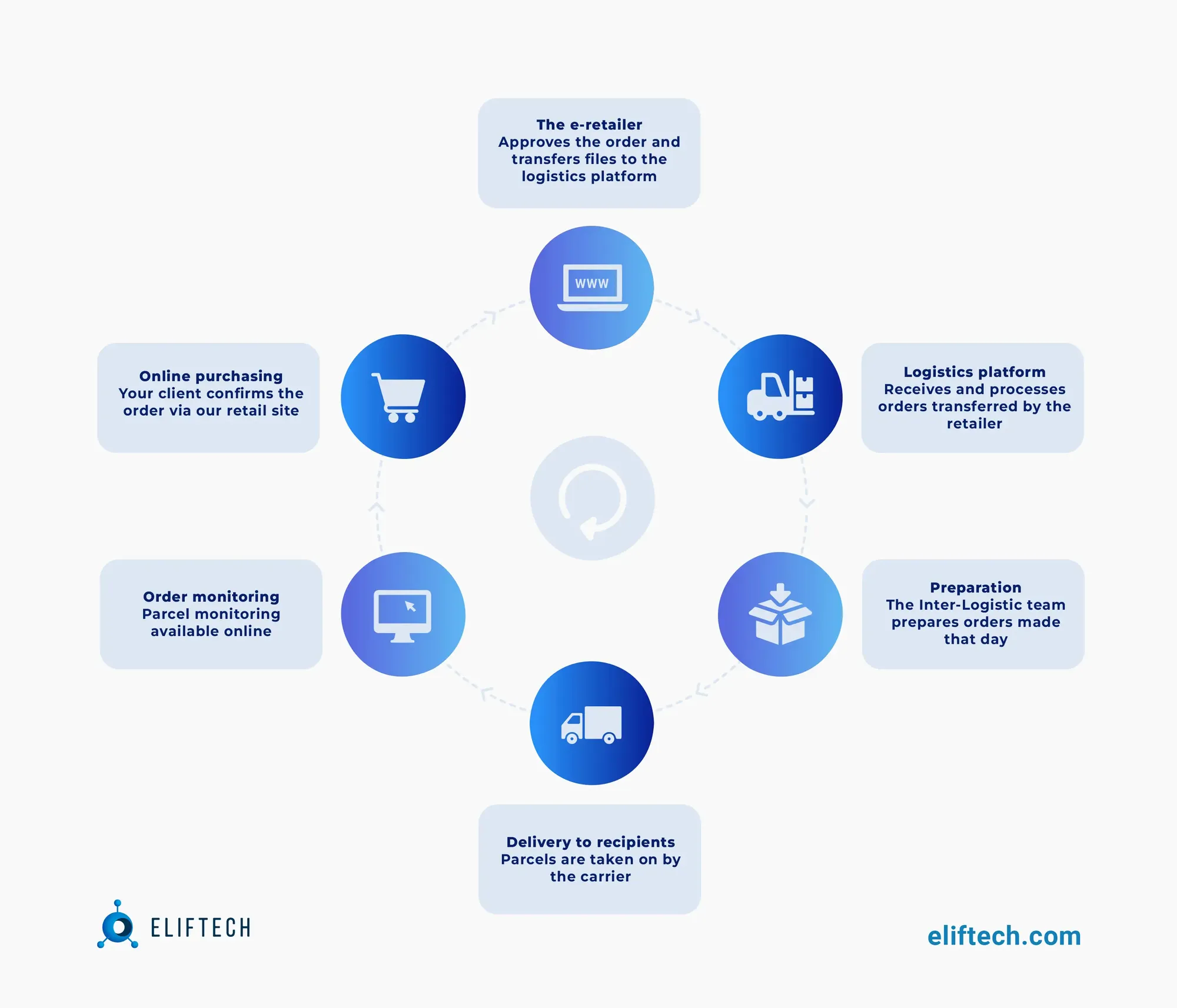
Supply Chain Implementation
Today, the logistics sector is no longer just a “back office” function but an essential element of any business strategy. The reason for this is simple: e-commerce has changed how consumers shop. Online retailers must be able to deliver products quickly and reliably or risk losing customers who can easily switch to a competitor.
Automation of Shipping Processes
Custom logistic tracking systems can help you automate your shipping process. You can integrate the system with your existing software so it automatically updates your inventory database as items are shipped.
The system can generate shipping labels and send them to your customers automatically. This saves you time and helps ensure that customers receive their orders on time.
The system can also help you automate the return process. When a customer requests a return, you can print a shipping label and send it to them without manually inputting any information. This helps speed up getting items back into your inventory once they’ve been returned.
Auto-Dispatch Technology
Eliminate manual dependencies accompanied by traditional dispatching practices by adopting automated dispatch software to plan your deliveries. As a bonus, the Auto-Dispatch technology reduces investment in executing repeated manual tasks and mitigates delays and human error. Plus, ensuring timely and accurate deliveries positively impacts the holy grail of all commerce everywhere - customer experience.
Modern customer experience is the crucial factor and differentiator for brands in most industries. Today's’ customers do not so much “buy a product or service” as purchase an experience. And, if the experience comes up short, even the best quality of the products and services can no longer compensate for it.
In fact, according to some estimates, over 80% of online shoppers abandon their cart if they don’t receive an item within three days. This means that any retailer with an e-commerce site needs a robust logistics system in place.
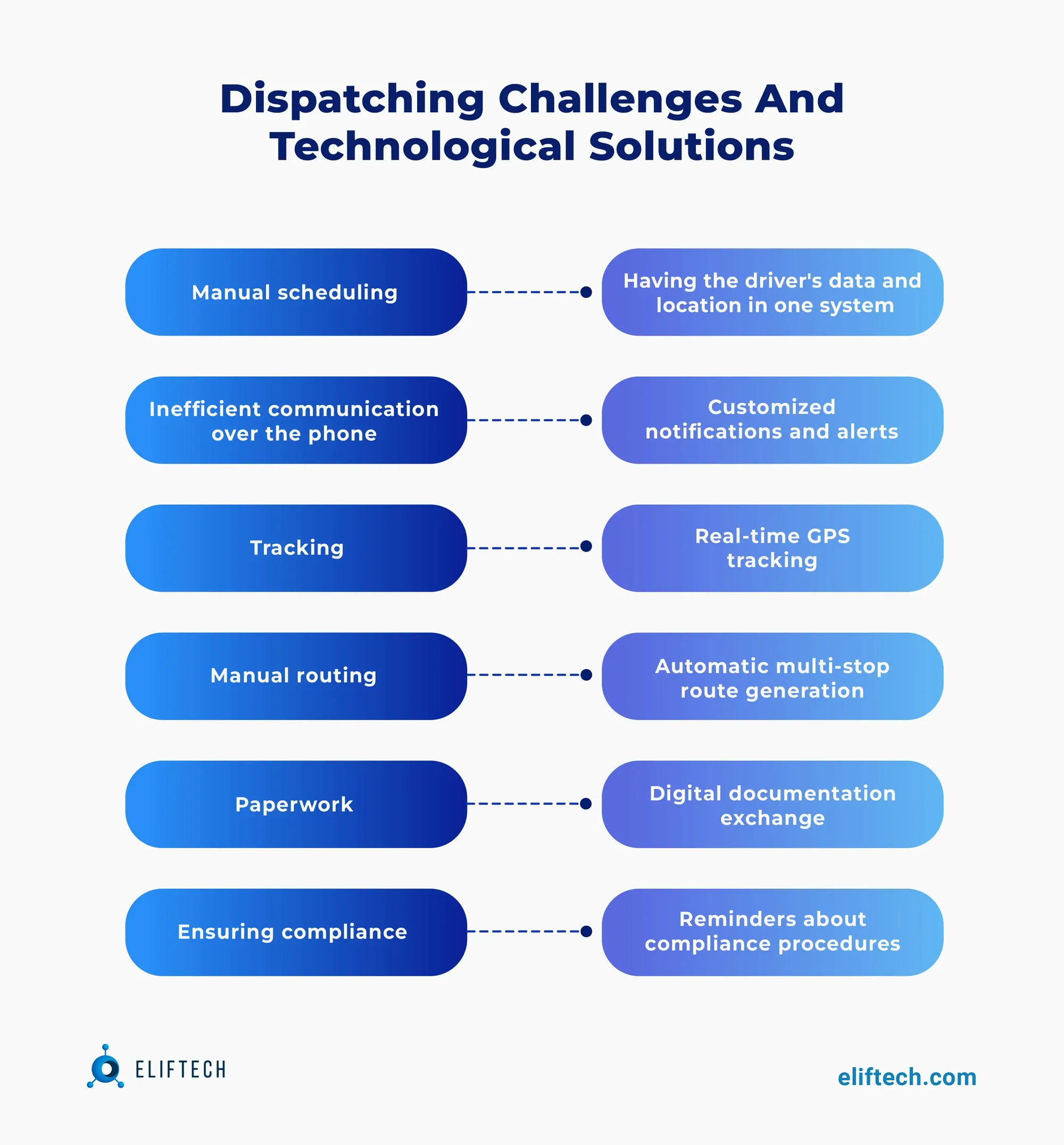
Real-Time Driver Tracking
Modern technologies make it possible to fulfill all business needs. So real-time tracking is the first step to ensuring your deliveries are completed on time. With real-time logistics tracking of a driver, you can monitor your delivery vehicles and drivers in real-time to know precisely where they are at any given moment.
In addition, the construction of the route and logistics ensures the optimization of the company's work and eliminates additional costs. In total, all this leads to increased operational efficiency, increased income due to high-quality and fast service, and reduced costs.
Improved Driver Communications
The next trend changing the logistics industry is the rise of driver communication devices. Companies like Apple and Google have made it easier than ever for drivers to communicate with their dispatchers using smartphones and other mobile devices. This allows companies to conduct shipment tracking more efficiently by communicating directly with drivers and enjoy the real-time visibility of the process.
Custom logistics software and innovative driver communication apps can become irreplaceable tools in combating nationwide driver turnover. Companies that adopt such innovative tech almost immediately see improved driver retention and a dramatic decline in the "hire, train, and repeat" culture.
Drivers can effortlessly send photos of paperwork instead of tenuously entering data manually. TMS, afterward, processes and sorts the data into the correct workflow. The custom mobile solutions offer numerous other functions and features to facilitate dramatic cuts of manual data entries, follow-up calls, and other repetitive processes.
Read more: How to Build an Effective Transportation Management System: The Definitive Guide.
Automated Status Updates
The other trend impacting the logistics industry is the rise of automated status updates. Companies like Amazon and Walmart use algorithms to automatically update customers on when their packages will arrive and where they are currently located. This allows companies to manage customer expectations while streamlining their operations by optimizing logistics.
When you set a status for a freight document with two transportation stops, the system automatically updates related statuses based on the status that you set. The sections below explain how the various statuses are updated.
Customers prefer brands prioritizing delivery notifications because they want to stay updated with their order status. It ensures their orders reach them by the estimated arrival time (ETA).
To enable automated delivery notifications for your business customers, you will need delivery management software. It will automatically send updates of the entire delivery process to the customers in different phases. Order status notifications promote utmost customer satisfaction, for which all logistics businesses should leverage their potential.
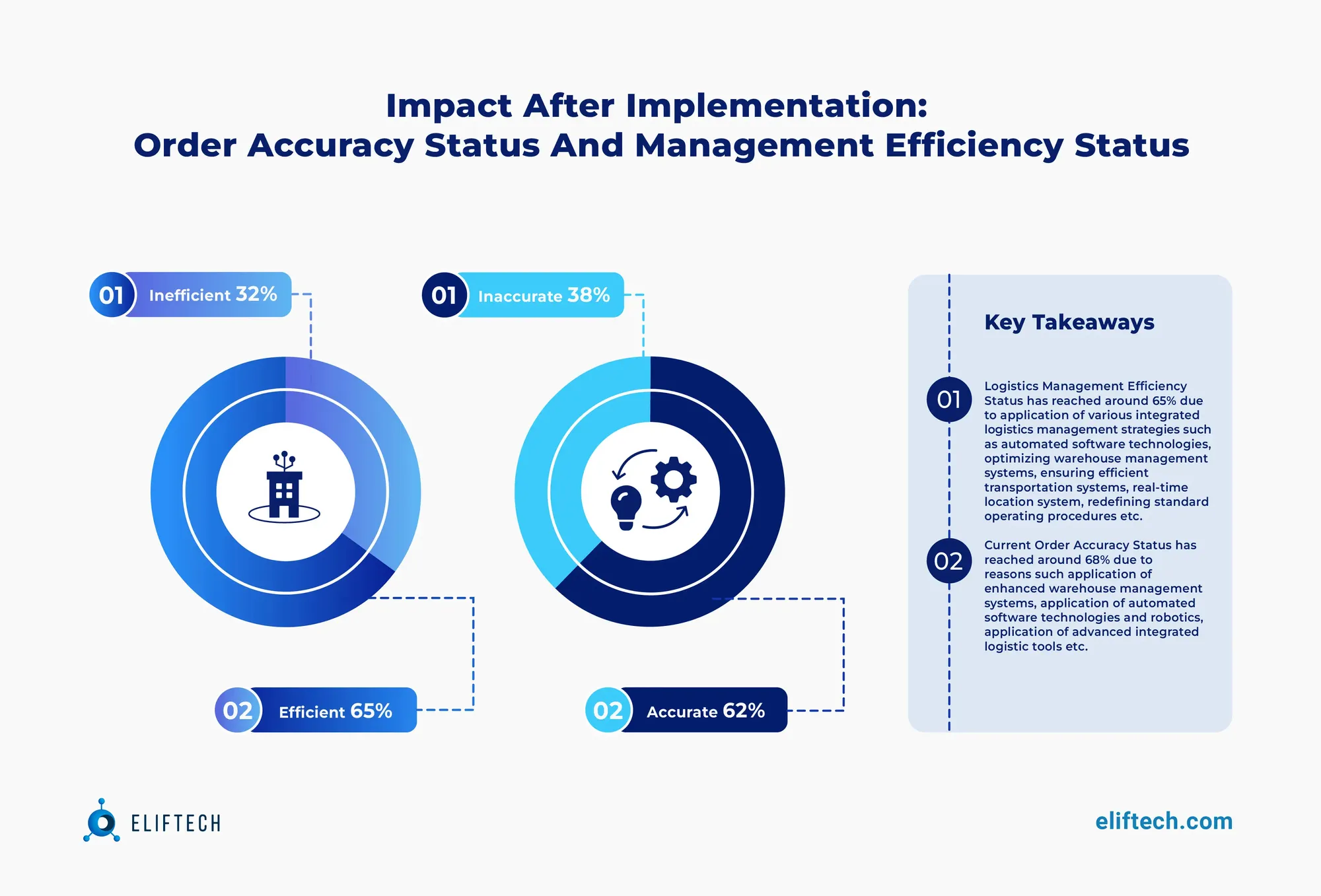
Why Choose Custom Logistics Software Over a SaaS Solution?
Custom logistics software can give you a competitive edge in your industry. You may have heard that SaaS solutions are the most cost-effective option, but they lack the customization necessary for every business. The right software solution will help your business streamline operations and improve operational efficiency.
Customized logistics software is designed with your processes in mind to complement and improve them. By choosing custom development, you can be sure that all your problems will be solved, your needs will be covered, and there will be no unnecessary functionality.
Custom-built Solution Based on the Company’s Needs & Close-Knit Communication With the Team at All Stages
Customized tracking software can be tailored to your business’s unique needs. It’s crucial not to forget that every business is different. Thus, the software you choose should reflect those differences. If you choose a SaaS solution, it may not work as intended or provide all the functionality you need to operate efficiently.
Moreover, customized software can be designed to integrate with other systems, so you won’t have to worry about compatibility issues. It must be remembered that SaaS solutions are not a panacea for poorly managed operations.
At Eliftech, we are passionate about eliminating all barriers that prevent businesses from responding quickly to external events. By taking the time to understand what you want and need, our team of developers can create a custom program that will help you streamline operations and increase productivity.
Exclusive Custom Logistics Tracking System Rights of Ownership
One of the real benefits of adopting a custom logistics tracking system is owning the tech completely. Eliftech proudly provides customers exclusive ownership rights to their custom software solutions. As the software owner, you will have complete control over your program. You can modify it as needed and make any necessary changes to keep up with industry trends.
ElifTech Expertise in Logistic Software Development
Our key expertise is the ability to boost your logistical capabilities. For example, check out one of Eliftech’s success stories with fleet management systems. We enabled multi-tenant architecture to support the program in the hosted and on-premise modes and make the solution available in multiple languages. Besides, we ensured that the company’s vehicle fleet remained accessible, manageable, trackable, and in service at all times.
ElifTech offers multiple diverse services for individual logistics tracking system needs.
- MVP - if you only have an idea for a product, it's better not to waste time and money on the lengthy development of details but to launch a minimum viable product and test all hypotheses on it.
- B2B portals - working with a wholesale business can also be automated so that all parties will be confident in the security and quality of the transaction, and the exchange of goods will be easier to organize.
- SAAS - any software can pay off not only through direct operation but also through so-called leasing.
- Applications - For constant access to your tool, develop applications that help organize employees' work outside the office.
- CRM - helps to build relationships with customers correctly and not lose any information.
- ERP - properly managing enterprise resources will help you save time, money, and effort.
- TMS - one of the real solutions in delivery and cargo transportation, will help you keep all processes under control, optimize resource use, and increase productivity.
- WMS - Working in a warehouse takes a significant amount of time. These processes can also be automated to increase the efficiency of your company.
Read more: What Is a Transportation Management System?
At Eliftech, we are committed to helping you find a solution that will streamline your operations and provide you with real-time visibility of your logistics processes. Contact us to learn more about what we can do for your business!
Final Thoughts
After the pandemic, some industries flourished while others declined. However, e-commerce is one of the industries that has recently received a real boost. E-commerce is a great way to generate revenue but it can also be challenging for businesses.
Whether you're looking to develop logistics tracking software from scratch or redesign an existing one, Eliftech can help. We have years of experience building custom software solutions and can provide the tools you need to succeed in today’s online marketplace.
